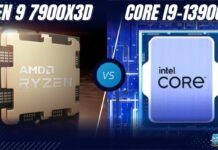AMD Ryzen 7 7730U
Rated: 8/10
AMD Ryzen 7 5700U
Rated: 6.75/10
Pros And Cons
| CPU | Pros | Cons |
|---|---|---|
| Ryzen 7 7730U | ✅ Much better performance compared to the 5700U | ❌ Worse power efficiency ❌ A higher price tag |
| Ryzen 7 5700U | ✅ Great power efficiency ✅ A low price tag | ❌ Considerably lower performance than the 7730U |
- Overall, the Ryzen 7730U was about 12% faster than the 5700U in our Ryzen 7 7730U Vs Ryzen 7 5700U benchmarks.
- The Ryzen 7 5700U is about 2 years older than the Ryzen 7 7730U.
- According to our power consumption test, the Ryzen 7 5700U is about 16% more power efficient than the 7730U.
Comparison Table
| Model | AMD Ryzen 7 7730U | AMD Ryzen 7 5700U |
|---|---|---|
| Architecture | Zen 3 | Zen 2 |
| Clock Speeds | 2000 - 4500MHz | 1800 - 4300MHz |
| L2 Cache | 4MB | 4MB |
| L3 Cache | 16MB | 8MB |
| Cores | 8 | 8 |
| Threads | 16 | 16 |
| Technology | 7nm | 7nm |
| Default TDP | 15W | 25W |
| Max. Temp. | 95 °C | 105 °C |
| iGPU | Vega 8 | Vega 8 |
Architectural Differences
- Core Counts: Both these processors have the same core count comprising 8 cores and 16 threads.
- Clock Speeds: The Ryzen 7 7730U has a 200MHz faster clock speed than the 5700U. It has a base clock of 2000MHz and a boost of 4500MHz, while the 5700U has a base of 1800MHz and goes up to 4300MHz.
- Technology: Both these processors are based on the 7nm manufacturing node, which beats Intel’s most recent processors.
- Default TDP: The Ryzen 7730U has a higher default TDP than the 5700U. It sits at about 25W, whereas the 5700U sits at around 15W. This means that the older processor was also made with lower power consumption in mind.
- L3 Cache: The cache situation is much improved between generations. The Ryzen 7 7730U has a cache of 16MB, compared to the lower 8MB on the 5700U.
With the new generation of Ryzen and Core CPUs out, it might be difficult for consumers to choose between processors. One good option is to go for an older generation, as they are usually good enough whilst being significantly cheaper. Our aim in the Ryzen 7 7730U Vs Ryzen 7 5700U comparison is to remove the air of confusion around this decision and help you to decide which processor is best for you.
Ryzen 7 7730U Vs Ryzen 7 5700U: Benchmarks
Now that we’ve glanced at the rather large architectural differences between the two processors, this part of the comparison will lay down the performance of each processor in modern, demanding benchmarks to help you picture the abilities of each chip.
Cinebench R23
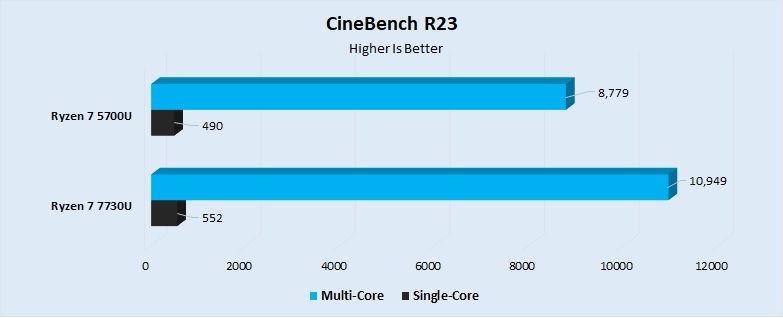
- In our single-core test of performance using Cinebench R23, the 5700U comes up short by about 11%. It scores about 490 points, whereas the 7730U scores a more attractive 552 points.
- The difference in performance only grows larger when we switch to multi-core performance. The 77330U gets about 10949 points, whereas the 5700U gets around 8779 points, a difference of about 20%.
7-Zip
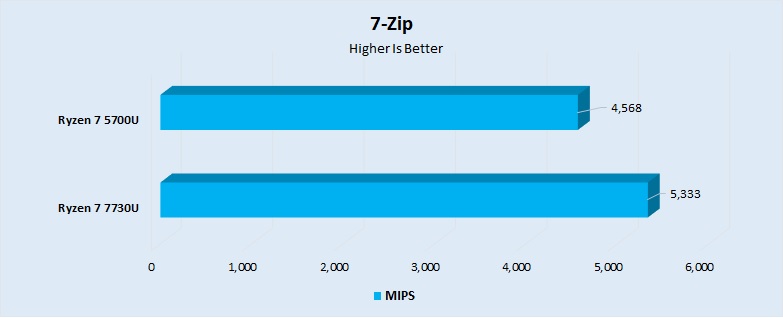
- Moving on to software you might have used in your daily life, the 7-Zip decompression test runs much better on the 7730U, the difference being about 17% in our benchmarks.
- The Ryzen 7 5700U got a performance of 4568 MIPS, whereas the 7730U was blazing ahead with a performance of 5333 MIPS.
HWBOT x265
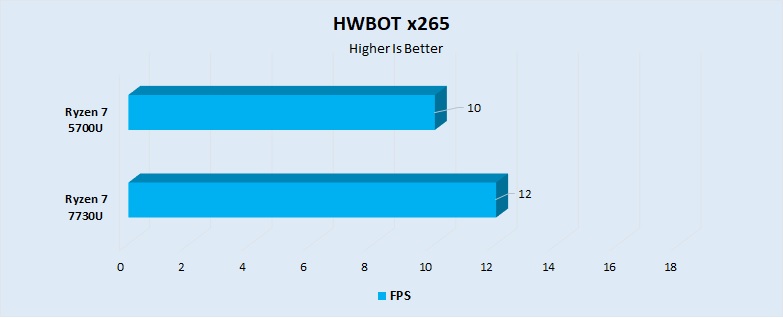
- For video editors, the HWBOT x265 benchmark gives an excellent evaluation of what the overall performance of the chips would be like, and the 7730U comes out ahead again by a good margin of about 19%.
- The 7730U had a performance of about 12 FPS, whereas the Ryzen 7 5700U struggled to maintain about 10 FPS in our testing.
Blender
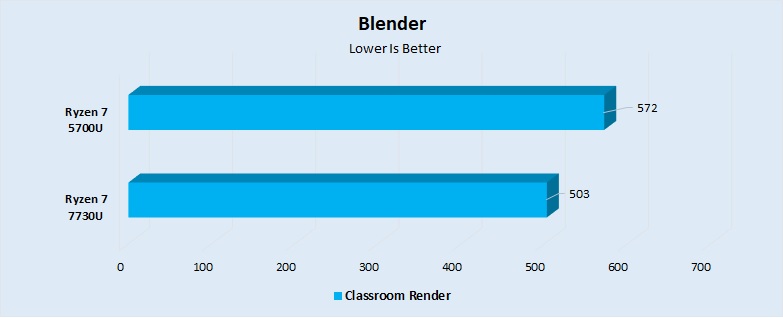
- Continuing the use of everyday software for creators, we found Blender ran about 13% better on the 7730U.
- The 7730U ended the Classroom render in about 503 seconds, while the 5700U took about 572 seconds to finish the same render.
3DMark 11
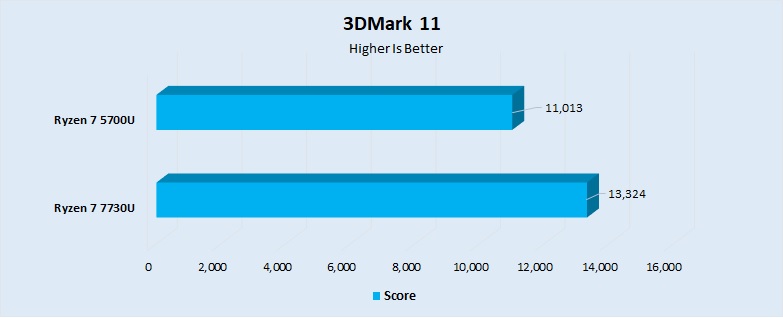
- This physics renderer is a good way to test the capabilities of your processor that might spill into everyday tasks like gaming. We conducted the testing and found the 7730U also maintained its dominance in this test, with a lead of about 17%.
- The 7730U got a total of 13324 points, much improved from the 11013 its older brother got.
Geekbench 5.4
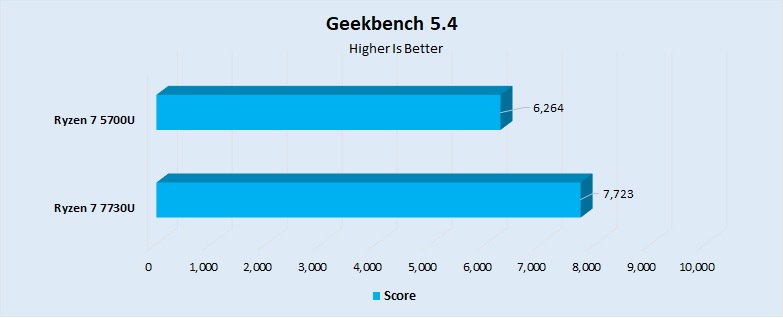
- Geekbench is hailed for bringing forth the real-life performance of processors into perspective, and it did so with the two processors at hand. The 7730U beat the 5700U by about 19% in the single-core part of this benchmark. The 7730U got about 1411 points, whereas the 5700U got about 1186 points.
- The story continued with the multi-core performance in our results. The difference in performance was identical at about 19%. The 7730U scored about 7723 points, whereas the Ryzen 7 5700U scored around 6264 points.
Octane V2
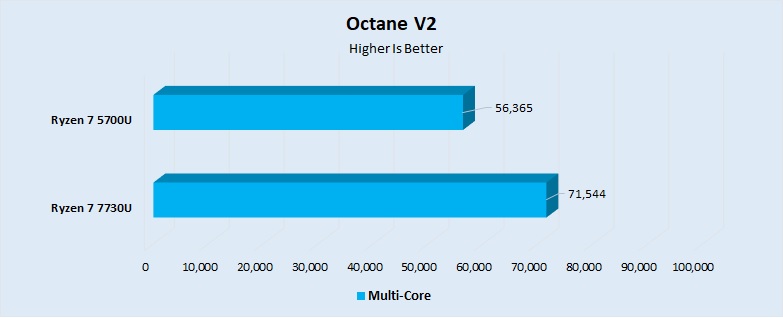
- For the final benchmark in our tests, Octane V2 continued the trend of the 7730U dominating over the 5700U. The improvement in performance in the two processors was about 21%.
- The 7730U had a score of about 71544 points, whereas the 5700U capped out at about 56365 points.
Power Consumption
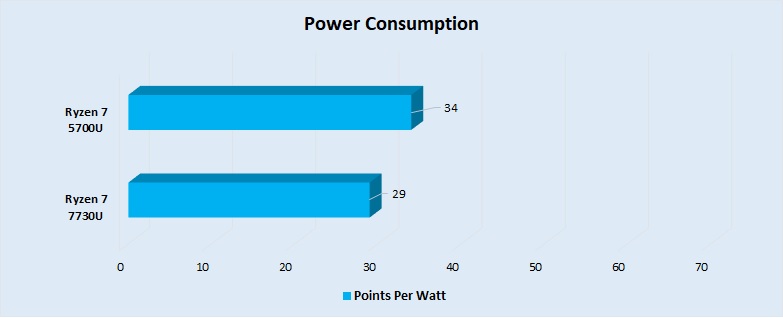
- Coming to the final thing to discuss while deciding on a laptop processor power consumption. According to our external monitor, the Ryzen 5700U was about 16% better than the 7730U under stress.
- The Ryzen 7 7730U had a performance of about 29 points per watt in Cinebench R15, whereas the 5700 had about 34 points per watt.
Read our guide on extending a laptop’s battery life if you are worried about running out.
Ryzen 7 5700U Vs Ryzen 7 7730U: Which One We Recommend
Ryzen 7 5700U: The Ryzen 7 5700U offers good performance for a lower price tag to users who want good processors on a budget. However, in our experience, it is not good enough to compete with the Ryzen 7 7730U in terms of power and performance. However, it provides its output in a power-efficient manner.
Ryzen 7 7730U: The Ryzen 7 7730U is the dominant processor in terms of capabilities and performance in our comparison with the Ryzen 7 5700U. The processor has a strong foundation and benchmark results to compete with its rivals. Users with a good knack for performance and crave for smoothness should look out for this processor.
Considering the trade-off between performance and cost, we recommend the Ryzen 7 7730U for users who prioritize raw processing power and have the budget for it. However, if cost-effectiveness and energy efficiency are primary concerns, the Ryzen 7 5700U remains a solid choice, offering decent performance at a more affordable price point.
More From Ryzen 7 7730U:
Thank you! Please share your positive feedback. 🔋
How could we improve this post? Please Help us. 😔
[Comparisons Specialist]
I’m a passionate computer hardware expert specializing in CPUs and GPUs. With a lifelong curiosity for hardware and extensive hands-on experience, I provide valuable insights, practical advice, and in-depth analysis on these components. Engaging with the hardware community, I exchange knowledge and stay at the forefront of technological advancements.
Get In Touch: uzair@tech4gamers.com


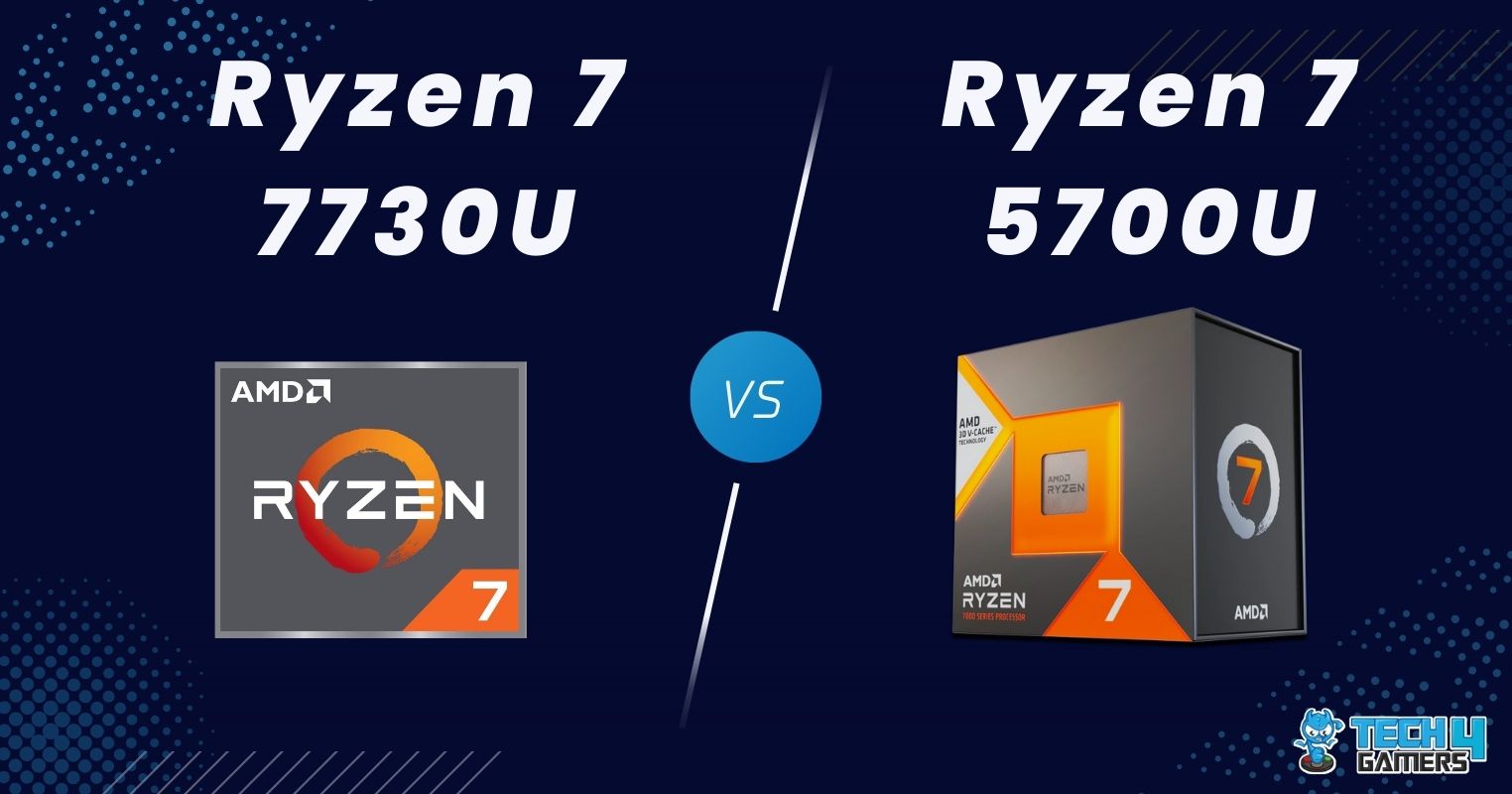

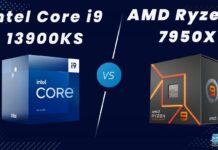
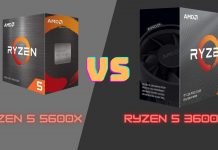
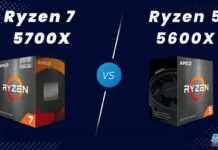
![Core i7-14700K Vs Ryzen 7 7800X3D [We Tested 11 Games] Core i7-14700K Vs Ryzen 7 7800X3D](https://tech4gamers.com/wp-content/uploads/2023/11/Core-i7-14700K-Vs-Ryzen-7-7800X3D-218x150.jpg)
